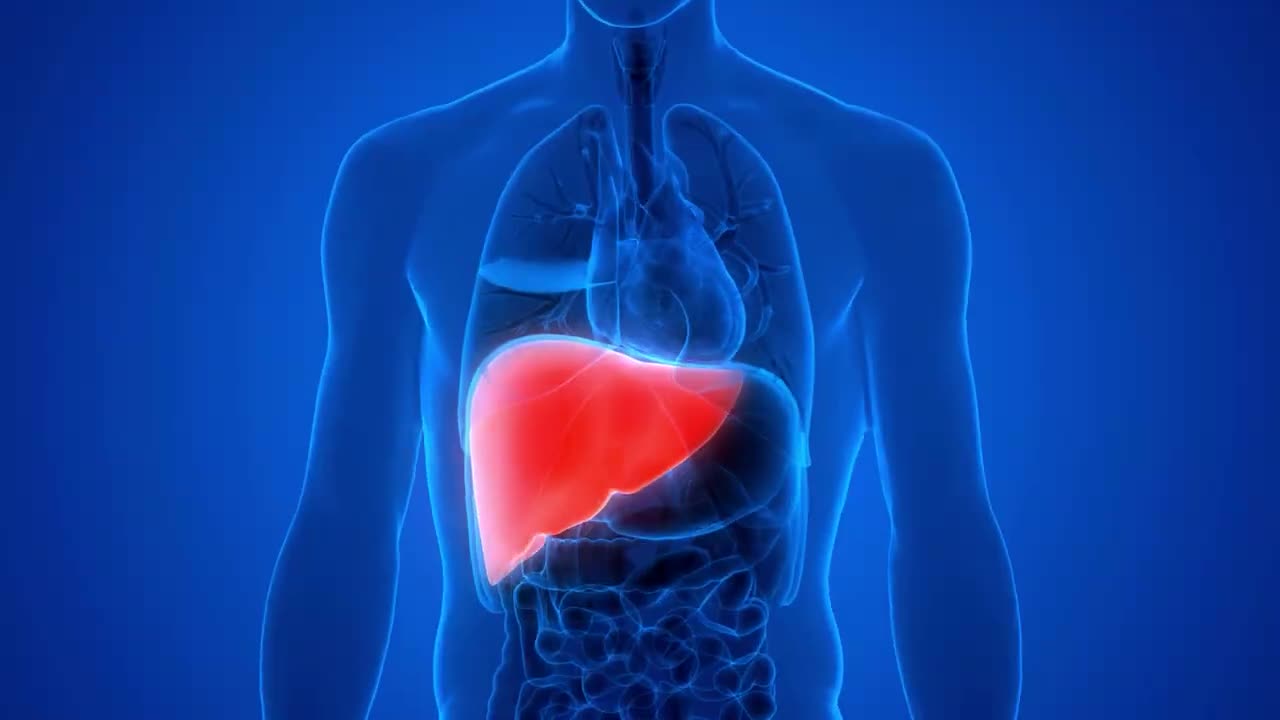Premium Only Content

How Alcohol Damage Human Body? (Silent Killer)
#alcoholfree #alcohol
Alcohol damages all our body organs, such as the stomach, small intestine, liver, brain, heart, and kidneys, etc.
After consuming alcohol, approximately 20% of it is absorbed in our stomach. This stimulates the production of more gastric juices, which can then damage the stomach lining, leading to stomach ulcers. The other 80% of alcohol is absorbed from the small intestine into the bloodstream. In the small intestine, alcohol also causes slow food movement and bloating.
When alcohol enters the bloodstream, it dilates blood vessels, causing the heart to beat quickly and leading to a heart attack. Moreover, high blood pressure increases blood flow to the skin, causing excessive heat loss and dehydration.
In the brain, alcohol constricts brain tissue, increasing the chances of bleeding and blood clots, which can be life-threatening. Alcohol affects brain functions such as speech, balance, judgment, and memory by secreting dopamine and serotonin.
The liver is responsible for breaking down waste materials in our bodies. Alcohol breakdown in the liver produces carbon monoxide, damaging liver cells and depleting oxygen levels, leading to hypoxic hepatitis, a life-threatening condition. Alcohol also causes fat buildup in the liver, resulting in fatty liver disease, bleeding, swelling, and inflammation. This can lead to a slowing production of blood clotting factors, causing chronic liver inflammation.
The kidneys' function is to filter blood, and proper blood flow and hydration are crucial for their function. Alcohol abuse causes constant heat loss from the skin, leading to dehydration. Increased blood flow to the kidneys can damage kidney cells, leading to the accumulation of wastes in the blood and an imbalance of electrolytes like sodium and potassium, which can lead to kidney failure.
Alcohol inhibits the processes that produce protein in our muscles, resulting in muscle weakness and cramping. Additionally, alcohol interferes in the production of Vitamin D, which strengthens bones by aiding calcium absorption. Low calcium levels in the bones due to alcohol's interference result in bone thinning and an increased risk of fractures.
Treatment for alcoholics is available in recovery centers in every country, where they receive appropriate care. Medications like naltrexone, Acamprosate, and disulfiram can also help control the pleasant feelings associated with alcohol.
#alcohol #alcoholfree
-
 LIVE
LIVE
Quite Frankly
6 hours ago"Atlantis, Open Lines, RFK & Geo-Engineering" ft The Observation Lounge 4/30/25
779 watching -
 LIVE
LIVE
LFA TV
22 hours agoFifty Years of Military Failures | TRUMPET DAILY 4.30.25 7PM
349 watching -
 LIVE
LIVE
2 MIKES LIVE
2 hours ago2 MIKES LIVE #211 News Breakdown Wednesday!
113 watching -
 LIVE
LIVE
Dr Disrespect
8 hours ago🔴LIVE - DR DISRESPECT - WARZONE NUKE - WILL IT EXPLODE?
1,793 watching -
 2:28:01
2:28:01
Barry Cunningham
4 hours agoWATCH LIVE: PRESIDENT TRUMP SPEECH ON INVESTING IN AMERICA!
37.3K6 -
 LIVE
LIVE
StoneMountain64
6 hours ago1st stream BACK! Arc Raiders BRAND new exclusive alpha early look
317 watching -
 20:09
20:09
Exploring With Nug
9 hours agoVanished After Driving Away… I Spent the Day Searching Lakes
16.5K -
 27:25
27:25
CatfishedOnline
7 hours agoMan Goes Missing After Romance Scammer Reveals Herself!
17K1 -
 1:21:14
1:21:14
Dr. Drew
5 hours agoBREAKING: DOJ Investigating Medical Journals For Fraud; Publishers Call Letters "Harassment" w/ Elijah Schaffer & Dr. Ram Yogendra – Ask Dr. Drew
8.51K3 -
 1:15:45
1:15:45
Redacted News
3 hours agoBREAKING! RFK JR. EXPOSES TRUTH BEHIND CHEM TRAILS AND CHILD TRAFFICKING AT HHS | REDACTED NEWS
127K150